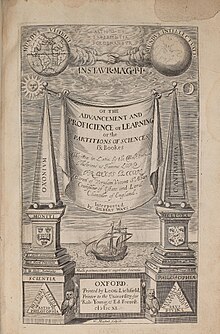A request that this article title be changed to List of publications in philosophy is under discussion . Please do not move this article until the discussion is closed. |
The inclusion or exclusion of items from this list or length of this list is disputed. |
| Part of a series on |
| Philosophy |
|---|
| |
This is a list of important publications in philosophy, organized by field. The publications on this list are regarded as important because they have served or are serving as one or more of the following roles:
Contents
- Historical texts
- European and Islamic philosophy
- Asian philosophy
- Contemporary philosophy
- Logic and philosophy of logic
- Philosophy of language
- Epistemology
- Metaphysics
- Philosophy of mind
- Philosophy of religion
- Philosophy of mathematics
- Philosophy of science
- Ethics
- Aesthetics
- Social philosophy
- Political philosophy
- Continental philosophy
- Eastern philosophy
- See also
- Notes
- External links
- Foundation– A publication whose ideas would go on to be the foundation of a topic or field within philosophy.
- Breakthrough– A publication that changed or added to philosophical knowledge significantly.
- Influence– A publication that has had a significant impact on the academic study of philosophy or the world.
